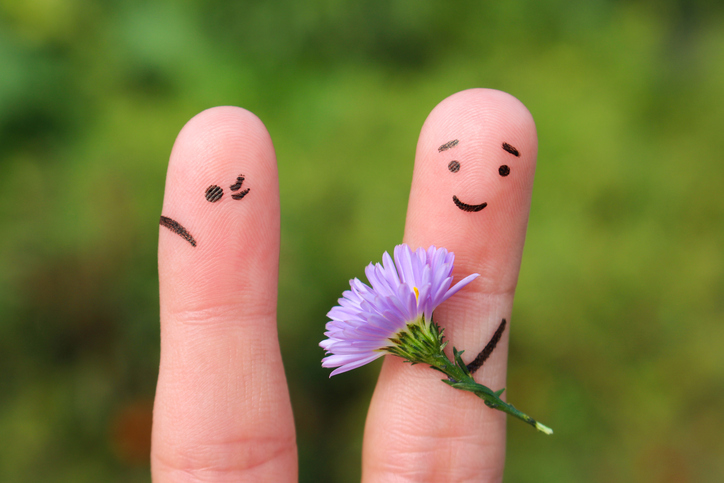The super-cliché answer to “What do you like the least about yourself?”, as we are all well-aware, usually is “I forgive too easily!” Cliché, indeed. Even science accepted that people cling to good impressions while assessing others’ moral characters and they may ignore bad behaviour patterns due to the presence of good ones.
Social bonds security
Psychologists from the universities of Yale, Oxford, London, and from the International School for Advanced Studies explain our reason for being flexible in judging and continuing with bad relationships with our affinity to forgive. The study, published in Natural Human Behaviour, suggests that our brains are wired to organise our social impressions in a way that enables forgiving.
The good, the bad, and the forgiving
More than 1,500 participants were asked to assess the choices of two strangers caught up in a moral dilemma: To give a painful an electrical shock to another stranger in exchange for money, which, of course, results in two different decisions. And the participants were asked about their impressions on the matter.
All participants reflected quick and strong positive impressions about the “good” stranger who refuses the offer. Although, when it came to the “bad” one who accepted the offer for money, the participants were not that confident about their impressions and they were prone to changing their minds. When the “bad” stranger made sporadic “good” decisions, the impressions of the participants immediately changed until his next “bad” move.
Yale psychologist (and the senior author of the paper) Molly Crockett says this may be the underlying cause for why people sometimes stubbornly stick with their bad relationships. “We think our findings reveal a basic predisposition towards giving others, even strangers, the benefit of the doubt. The human mind is built for maintaining social relationships, even when partners sometimes behave badly.”
REFERENCES
- 1. https://news.yale.edu/2018/09/17/we-are-predisposed-forgive-new-research-suggests

